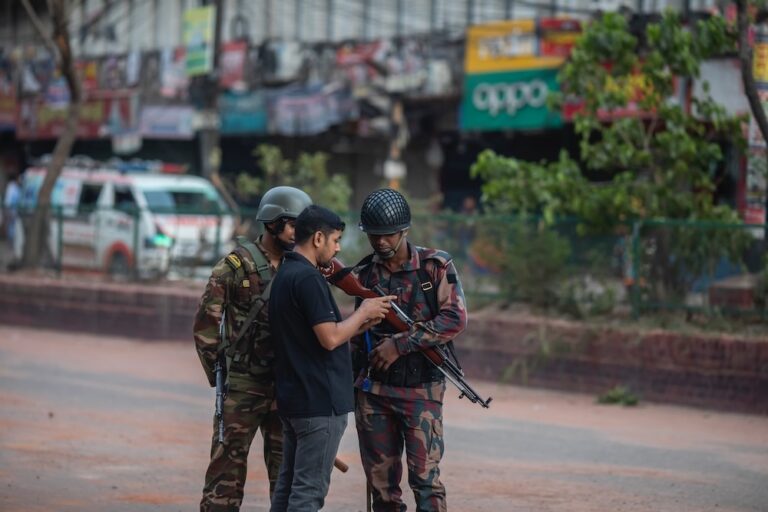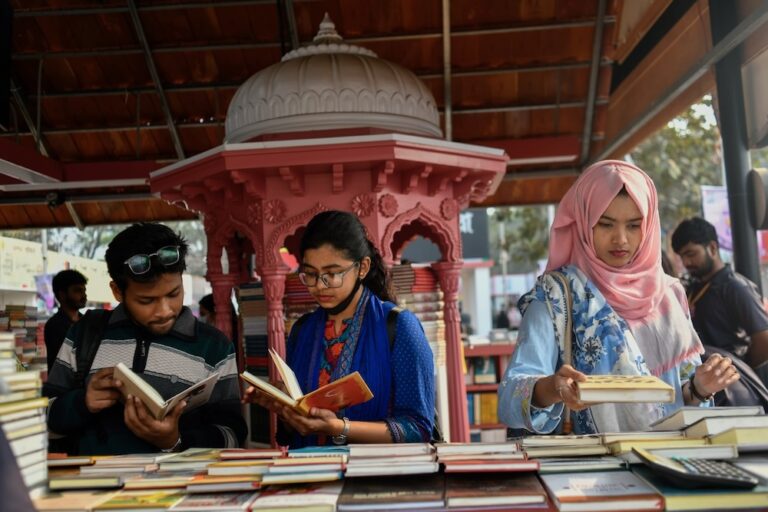STATE OF PRESS FREDOM IN BANGLADESH IN 1999 Summary Report by MEDIA WATCH, Bangladesh Detailed report will be available by May 2000 1999 was a year of violence against freedom of the press in Bangladesh. It was a year of intolerance among the ruling party and opposition activists. A large number of press photographers and […]
STATE OF PRESS FREDOM IN BANGLADESH IN 1999
Summary Report by MEDIA WATCH, Bangladesh
Detailed report will be available by May 2000
1999 was a year of violence against freedom of the press in Bangladesh. It was a year of intolerance among the ruling party and opposition activists. A large number of press photographers and reporters experienced the wrath of political activists and police. A number of senior journalists received death threats and several newspaper offices were attacked.
According to MEDIA WATCHâs monitoring cell:
ARRESTS: At least three journalists were arrested during 1999. They are:
Monir Hossain (reporter, ShathKhira Chitra), Abdul Hai Sikder (assistant editor, Inquilab daily), Shaukat Milton (staff correspondent, Janakantha daily).
ARREST WARRANTS: Arrest warrants were issued against one editor, one publisher, one
journalist leader and a correspondent during the year. Dhaka police issued a warrant against Abu Saleh – a union leader (who supported the opposition party) during the country-wide strike called by the opposition in February. Arrest warrants were issued against the editor of the Daily Muktakantha, KG Mustafa, publisher Iqbal Ahmed and Lalmonirhat correspondent Mukul Mahboob on a defamation case.
ASSAULTS/ WOUNDED: At least 40 reporters and 50 press photographers were assaulted and injured. Most of the time they were the target of the police and ruling and opposition party activists. At least 10 of them sustained bullet injuries. Political activists manhandled the photojournalists, trying to loot their cameras when the photojournalists were photographing their activities, and often set fire to the vehicles carrying them. At least 10 of them sustained bullet injuries.
ATTACKS ON NEWSPAPER OFFICES: In 1999 seven newspaper offices were attacked. In
Dhaka, the offices of the Daily Star, Janakantha, Sangram and Ajker Kagoj were targeted. In May, Islami hatra shibir – the student front of the fanatical Jamat-e-Islami – attacked the Chittagong office of the daily Prothom Alo. In August, the office of the daily Janakantha was attacked in Dhaka. A general employee of the paper sustained bullet wounds.
The office of two daily regional newspapers in the southern town Khulna, the daily Janmobhumi and the daily Rajpather dak, was attacked by an unidentified group. On 25 August, the BBC Dhaka office received a telephone call warning them to stop broadcasting. The caller threatened them that “otherwise the office will be the target of a bomb attack.”
The Barisal press club was attacked by the ruling party’s student wing in October.
DEATH THREATS: At least 11 journalists, including three editors, one news editor, an
assistant editor and a columnist, received death threats. Journalists working in the southern district town of Jessore received death threats from an underground Maoist group. The group circulated leaflets calling for the murder of the reporters and those who act against the “class struggle”. A group of reporters at Rajshahi University requested police protection when they received death threats from the ruling party’s student wing.
GOVERNMENT ACTION: Asian television network ATN cancelled its scheduled broadcast on the municipal polls. The presenter of the programme complained that the government stopped the programme. At least six newspapersâ declarations were banned and an issue of the weekly DESH, published in Calcutta, was censored.


